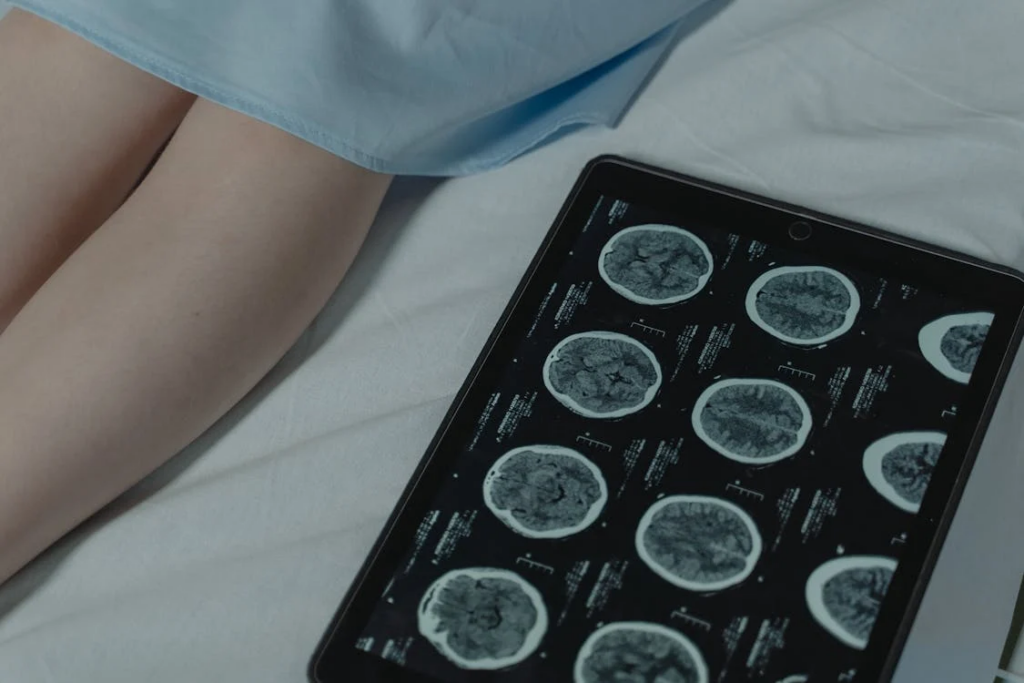Near-death experiences often evoke the phrase “my life flashed before my eyes,” suggesting a rapid review of one’s life. Recent research indicates that this phenomenon might not just be figurative language; it could have a neurological basis. For the first time, scientists have captured brain activity during the dying process, shedding light on what happens in the brain during this crucial moment.
Serendipitous Discovery

Initially, the study aimed to monitor brain waves in an 87-year-old patient to detect seizures. However, the patient unexpectedly suffered a heart attack and died during the monitoring session. This serendipitous event provided researchers with a unique opportunity to observe brain activity during the transition from life to death. The patient had been admitted to the hospital with a brain hemorrhage three days prior and subsequently experienced seizures.
Activity During Death

Analysis of the recorded brain activity revealed distinct patterns. In the moments leading up to and following death, there was an increase in gamma oscillations along with slower brain waves such as theta, delta, alpha, and beta. These patterns resemble those observed during dreaming, meditation, and memory recall. Lead author Dr. Ajmal Zemmar suggests that this brain activity could be akin to a final recall of significant life events before death, similar to reported near-death experiences.
Implications and Challenges

The recorded brain activity challenges conventional notions of when life ends and raises questions about organ donation timing. While this observation provides intriguing insights, it’s essential to acknowledge the limitations of the study. The findings are based on a single case study involving a patient with preexisting brain injuries and abnormal brain activity due to seizures.
Hopeful Insights

Despite the limitations, the study offers hopeful perspectives. Understanding that the brain may engage in positive memory recall during the dying process could provide solace to grieving families. Dr. Zemmar reflects on the potential impact of such insights in delivering difficult news to families of deceased patients.
Confirming Anecdotal Reports

This research aligns with anecdotal reports of life reviews during near-death experiences. Dr. Zemmar suggests that these experiences might involve the brain triggering responses akin to memory recall, providing patients with a profound yet fleeting glimpse into their past.
Further Inquiry and Spiritual Dimensions

While this study opens avenues for further research, it also underscores the mystical and spiritual aspects of near-death experiences. Dr. Zemmar emphasizes the significance of such findings, highlighting the profound implications for scientific inquiry into these transcendent phenomena.
Sources
- “First-ever recording of dying human brain reveals dreaming-like activity.” New Atlas. Michael Irving. February 21, 2022
- “Enhanced Interplay of Neuronal Coherence and Coupling in the Dying Human Brain.” Frontiers. Ajmal Zemmar. February 22, 2022
- “Brain scans on a dying man suggest his life flashed before his eyes, researchers say.” Insider. Anna Medaris. February 23, 2022
- “First Scan of the Dying Brain Reveals a ‘Last Recall’.” Technology Networks. February 22, 2022
- “‘My life flashed before my eyes’: a psychologist’s take on what might be happening.” The Conversation. Steve Taylor. June 10, 2021
- “Life may actually flash before your eyes on death – new study.” BBC News. Holly Honderich. February 23, 2022.


